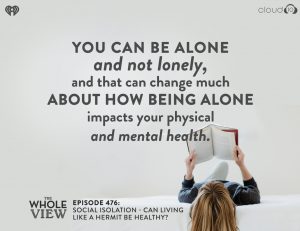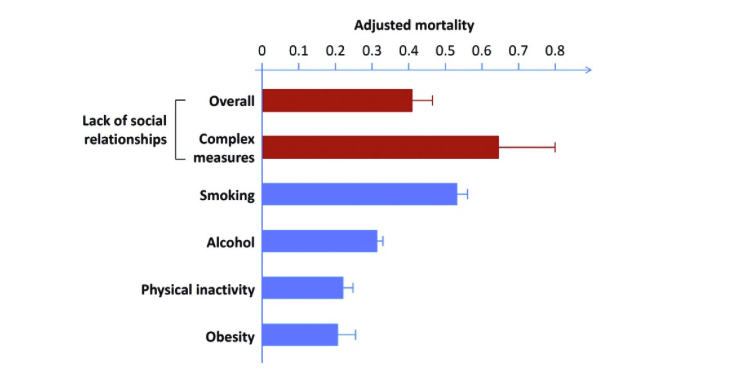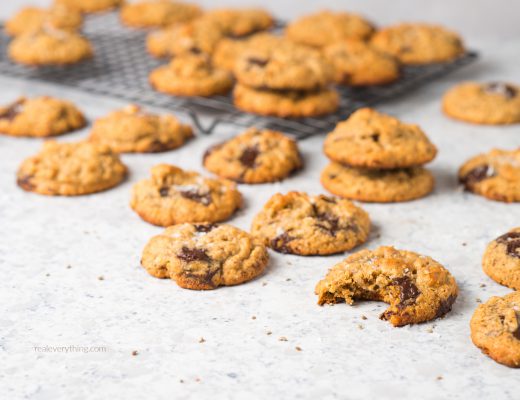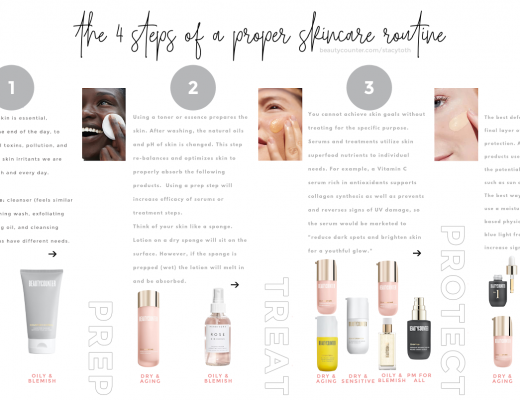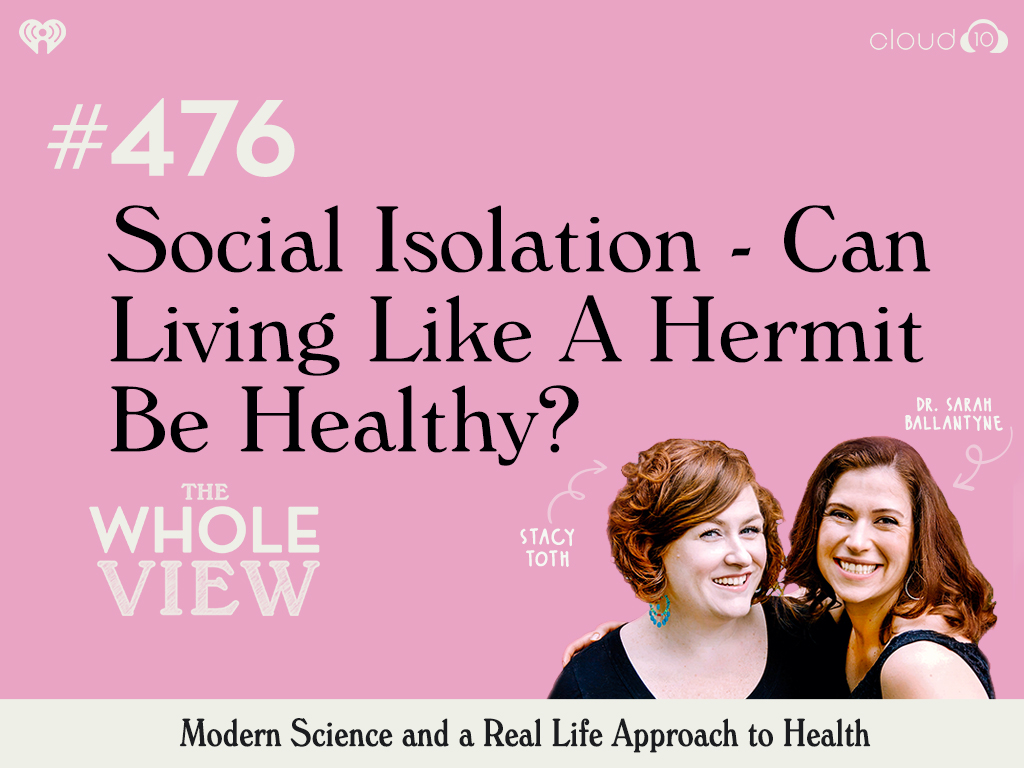
Welcome to episode 476 of The Whole View! This week, Stacy and Dr. Sarah dive into the science behind the effects of social isolation to determine whether living a hermit lifestyle can be healthy. They review studies pertaining to longevity, stress and anxiety, and benefits of pets.
If you enjoy the show, please review it on iTunes!
The Whole View, Episode 476: Social Isolation – Can Living Like A Hermit Be Healthy?
Welcome back to episode 476! (0:28)
Listener Question:
Hello Sarah and Stacy, even though it’s part of my job to listen to the podcast every week it’s something I really look forward to and I am a fan! I highly value both of your thoughts and I had a unique question I would love your take on. I have recently found myself in a place a lot of single people have. VERY VERY alone.
The only people I socialize with in person are my parents (once a month for a few hours) and the only other interaction I have is with the wonderful women I work with virtually, although we all converse almost daily and it is not 100% work-focused. I don’t have friendships outside of that or participate socially in any way. In addition, I have been off all social media (except for work) for over a year and I don’t leave my house except for bi-weekly grocery trips. (I did get my haircut finally after I was fully vaccinated, and I did go to Target once, but I am in no hurry to do either again.)
I have also found myself in a place where I have no desire to make new friends, dive back into the dating pool or drawn to start a family. So basically I’m 40+ going on 80??? Here’s the thing, I am now the happiest I have been since the pandemic started. (outside of all the upsetting things still going on all around us.)
I love waking up alone in my own home, cooking, nesting, working, watching movies, walking my dog and I am not bored or envious of others. I have essentially created a whole new lifestyle for myself, taking homebody to a new level. So my question is can you be a healthy hermit or will my little bubble of happiness lead to an unhealthy life long term?
– Charissa
Benefits of Connection
Since the benefits of connection are at the heart of Charissa’s question, let’s have a look at some of the underlying science on why connection and social interaction are so good for our health! (5:15)
Researchers have examined the role that connection plays in our health by looking at the two “extremes” of connection:
- Social isolation and loneliness, which corresponds with increased risk of morbidity and mortality
- A strong social support network, which corresponds with decreased risk of disease and increased longevity
Across the board, having strong social connections appears to protect us against disease and even extend our lifespan, while a lack of such a network significantly harms our health.
Connection, Disease Risk, and Longevity
A 2010 meta-analysis looked at social connection and all-cause mortality. 148 different studies found people with stronger social relationships had a 50% higher chance of survival than people with weaker social bonds. (7:15)
This was regardless of age, gender, cause of eventual death, length of the follow-up period, or how healthy each person was at the beginning of the study.
Researchers found significant differences across the type of social measurement evaluated the association was strongest for complex measures of social integration.
Additional research has shown that social isolation raises mortality risk independent of loneliness (and vice versa), meaning that even if we don’t feel lonely, a lack of social support might still harm our health.
Conversely, if we feel lonely despite having many social connections, we’re still at risk of earlier death.
In a study published just last week of people aged 69+ years living in Sweden, social isolation was more strongly associated with mortality than loneliness. Moreover, the association remained when controlling for health.
The combined effects of loneliness and social isolation did not surpass their independent effects.
Other Health Effects
Among older people, loneliness in older people (65+) increased the risk of dementia by 26%. (10:30)
A 2005 study evaluated how loneliness and a lack of social connection affected antibody production in response to an influenza vaccine in college freshmen. It showed substantial inhibition, indicating a suppressed immune response.
1997 study adults showed having a greater variety of social ties—including with parents, partners, friends, coworkers, and other community members—is associated with greater resistance to upper respiratory infections.
Although smoking, poor sleep quality, alcohol abstinence, low dietary intake of vitamin C, elevated catecholamine levels, and being introverted all associated with greater susceptibility to colds, they could only partially account for the relationship between social network diversity and incidence of colds.
2016 systematic review evaluated loneliness and social isolation on cardiovascular disease. They determined poor social relationships associated with a 29% increase in the risk of coronary heart disease and a 32% increase in the risk of stroke.
Stress & Inflammation
Feeling socially connected lowers cortisol and makes us more resilient to psychological stressors, meaning that our bodies produce less cortisol when we’re stuck in traffic and late for a meeting.
Positive social interactions reduce the effects of chronic stress, leading to improved health over the long term.
Higher degrees of social integration, which encompasses a person’s ties to family, friends, and the larger community, are associated with lower interleukin-6 and C-reactive protein levels.
Pregnant women socially supported throughout their pregnancies have lower levels of CRP, and among older women, having trusting and satisfying relationships with other people is linked to lower levels of interleukin-6.
“Social relationships, or the relative lack thereof, constitute a major risk factor for health—rivaling the effect of well-established health risk factors such as cigarette smoking, blood pressure, blood lipids, obesity, and physical activity.”
—House, J. S., K. R. Landis, and D. Umberson. “Social Relationships and Health.” Science 241, no. 4865 (1988): 540–45.
Is Living Alone Social Isolation?
The feeling of social connection is subjective, meaning that what matters is whether you feel connected, not how many friends you have.
A 2015 meta-analysis looking at social isolation and all-cause mortality found that social isolation increased the risk of death by 29%, loneliness increased the risk of death by 26%, and solitary living increased the risk of death by 32%.
Results remain consistent across gender, length of follow-up, and world region, but initial health status influences the findings.
Results also differ across participant age, with social deficits being more predictive of death in samples with an average age younger than 65 years.
Importantly, this study looked at mortality as a function of social isolation, loneliness, or living alone. Thus, it doesn’t really answer whether living alone (without social isolation or loneliness) is a risk factor.
Living alone as a risk factor was only recently methodically assessed!
2019 study of >50,000 older retired adults in Europe looked at different types of social networks and health outcomes: “restricted,” “child-based,” “friend-oriented,” and “diverse.”
The study shows the importance of drawing distinctions within the group of older adults living alone. Most (two-thirds) are not vulnerable and at-risk but fare just as well or even better than peers who co-reside with others.
Benefits of Safety
Putting hermit life into the context of a global pandemic, Dr. Sarah knows Charissa feels safer with a 99% controlled environment/safety from the outside world. And, a whole lot of us are still hunkering down.
She and Stacy talked about Maslow’s Hierarchy of Needs in Episode 456: Foster Care and Mental Health Awareness. They talked about how the pandemic affects mental health in Episode 458: Collective Trauma and Re-Entry Anxiety.
Briefly, feeling safe is super important for health and wellness. So we need to give ourselves the grace to re-enter society at our own pace and only participate in activities where we feel safe!
Each of us performs risk analysis a little differently. So, what feels right for one person will be different than what feels right for another. And that’s OKAY!
Friendship and the Pandemic on Social Isolation
Charissa mentioned that her friends are her work colleagues. That’s super common and even more so during the pandemic!
The May 2021 American Perspectives Survey finds that Americans report having fewer close friendships than they once did, talking to their friends less often, and relying less on their friends for personal support.
The pandemic has accelerated changes that were already occurring. For example, Americans are marrying later than ever and are more geographically mobile than in the past. Those are two trends strongly associated with increased rates of self-reported social isolation and feelings of loneliness.
American parents spend twice as much time with their children compared to previous generations, crowding out other types of relationships, including friendships.
Americans are working longer hours and traveling more for work, which may come at the cost of maintaining and developing friendships.
Perhaps reflecting its central place in the hierarchy of American social life, Americans are now more likely to make friends at work than any other way. That includes at school, in their neighborhood, at their place of worship, or even through existing friends.
And, we’re more likely to be relying on social media to stay connected with our friends and family.
Social Media & Other Digital Connection
Stacy and Dr. Sarah talked about the pros and cons of connection via social media in Podcast Episode 382: Social Media. (39:35)
Some studies suggest that spending significant time on social media is associated with greater social isolation, depression, and envy. Although, it’s unclear whether time online causes these feelings or fails to relieve the loneliness of people who go online looking for a sense of community and support.
Studies show that people with pre-existing depression and anxiety are more vulnerable to the harmful effects of social media use, especially when exposed to negative social interactions like cyberbullying.
Research confirms that online relationships fail to deliver the same level of intimacy experienced when spending time with someone in person.
Online interactions are also less effective in delivering emotional support, and that social support contributes to overall life satisfaction only if it’s delivered offline rather than on the internet.
On the other hand, social media appears to be neutral or beneficial when used to keep in touch between in-person meetings with friends, family, colleagues, and significant others.
Likewise, individuals whose online social networks are primarily of people they know in real life (as opposed to strangers) are far less likely to experience depression or anxiety associated with social media use.
Augmentation Not Replication
When we use our online social connections to augment offline relationships rather than replace them, and when we’re already psychologically healthy, social media can be a perfectly fine tool for helping us stay connected.
This is particularly true for people who use social media to keep in touch with loved ones and those who aren’t prone to comparing themselves to others online.
Charissa has stopped using social media other than for work. However, how Charissa maintains real-life friendships with digital tools (phone calls, text, Zoom) is overall a PLUS!
The Covid-19 Pandemic
A 2021 study showed how social interactions play an extremely important role in maintaining health and well-being. HOWEVER, the COVID-19 pandemic and associated physical distancing measures restricted the number of people one could physically interact with regularly.
A large percentage of social interactions moved online, resulting in reports of “Zoom fatigue,” or exhaustion from virtual interactions.
These reports focused on how online communication differs from in-person communication, but it is possible that when in-person interactions are restricted, virtual interactions may benefit mental health overall.
A survey conducted near the beginning of the COVID-19 pandemic found that having a greater number of virtual interaction partners associated with better mental health.
Decreased loneliness and increased perceptions of social support statistically mediated that relationship,
Researchers replicated these findings during the pandemic one year later and found these effects held even.
Benefits of Pets on Social Isolation
Charissa has a lovely, cuddly, dog, who I can tell from her photobombing meetings is also quite the character!
Physical touch is an important component of social connectedness and comes with its own set of health benefits.
Research has shown that physical connection reduces cortisol by hugging a family member, enjoying sexual relations with a partner, cuddling with a pet, or receiving therapeutic touch or massage.
A variety of studies have shown that therapeutic touch, when added to hospital care, improves patient outcomes in various ways.
Touch, love, and positive social interactions increase oxytocin, sometimes referred to as the “love hormone.”
Specialized neurons in the thalamus produce Oxytocin, then stored and released by the posterior pituitary gland.
Upon release, Oxytocin produces feelings of contentment and calm, reductions in anxiety, and increases human bonding and trust. It also inhibits fear and nervousness.
Increased oxytocin levels lead to decreased activity in the hypothalamic-pituitary-adrenal axis (or HPA axis, which controls the production of cortisol) and enhanced immune function. Essentially, increasing Oxytocin protects against stress.
Oxytocin also modulates inflammation by decreasing some pro-inflammatory cytokines.
Benefits of Touch Connection for Social Isolation
Stacy and Dr. Sarah talked about the health benefits of pets in TWV Podcast Episode 402: The Benefits of Pets (and Sarah’s getting a puppy!).
Several fascinating research papers show that companion animals also reduce blood pressure, reduce blood cholesterol and triglycerides, improve outcomes in cardiovascular disease sufferers, lower risk of heart attack and stroke, alleviate allergies, reduce obesity, improve rheumatoid arthritis and osteoporosis, and benefit those with ADHD.
The benefits of companion animals are most likely to reduce depression, anxiety, and social isolation.
There’s also the benefit of getting out for a walk with a dog, especially if that walk is in Nature!
Final Thoughts on Hermit Lifestyle
There’s a big difference between living alone and being socially isolated and lonely. And while studies have shown that solitary living does increase health risks, initial health and age are major mediating factors. (1:00:01)
A hermit isn’t automatically healthy, but they can be!
Charissa is doing everything right! She:
- is setting boundaries to protect her feelings of safety.
- has a lovely cuddly dog,
- maintains a connection with friends digitally,
- didn’t mention it, but she also is close with her family
- doing other things to support her health, including walking her dog, eating a Nutrivore diet, and making time for hobbies and work-life balance.
There’s a big difference between living alone and being socially isolated and lonely. And while studies have shown that solitary living does increase health risks, initial health and age are major mediating factors.
A hermit isn’t automatically healthy, but they can be!
If you enjoyed this show, we invite you to join Stacy and Dr. Sarah over on Patreon for exclusive behind-the-scenes content about how Stacy and Sarah feel about the topics they discuss. Your subscription goes to support this show and gets you direct access to Stacy and Sarah.
We invite you to subscribe to this channel and the realeverything.com and thepaleomom.com blogs and newsletters.
Thanks so much for listened and we will see you next week!
Want more info on our Real Life? Healthy recipes, parenting tips, and general lifestyle stuff goes out in our Real Everything newsletter, join here.
Never want to miss a post, sale, or deal? Join my Healthy Inside & Out e-mail list for more info on non-toxic living and safer skincare!
